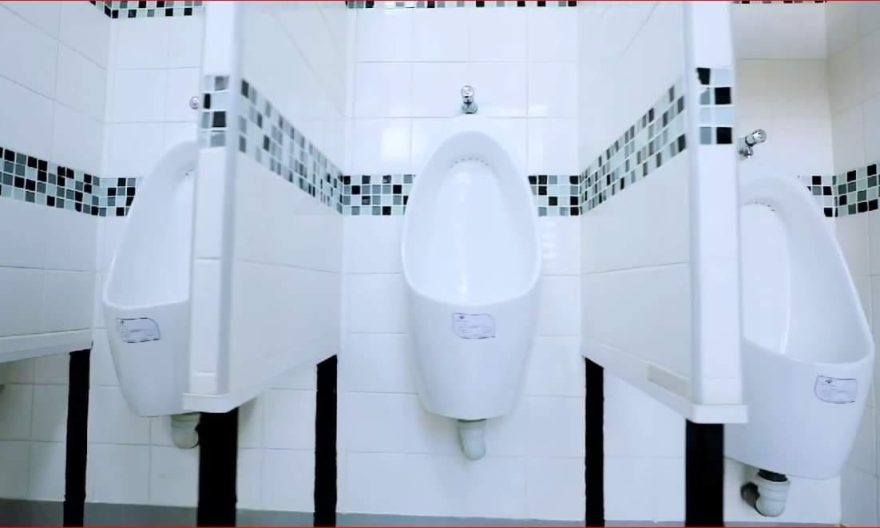
A few days ago, Prime Minister Abiy Ahmed (Ph.D.) launched the so-called ‘Clean Ethiopia Movement’, which will avail city residents all over the country of multiple sanitation facilities in all public areas besides keeping streets and neighborhoods clean and tidy so that everyone can have access to sanitation services that would help people live a healthy life. Residents of Addis Ababa know that they do not have easy access to these sanitation services because of the scarcity and times even total lack of the necessary infrastructure.
Some observers say the Derg government had initiated similar services in several main squares, such as the re-baptized Revolution Square, now turned to its original name Maskel Square, where residents could have easy access to toilets and other sanitation amenities, especially those residents who do not have these services in their homes. Unfortunately, the initiative did not manage to address all the needs of the city, and people were often forced to use open streets to meet their physiological needs.
Surveys have shown that thousands of homes in Addis do not have enough of these sanitation services with running water due to, in many cases, a lack of space and even planning. Some may have services, but not enough to meet the demands of residents who live in numbers in one compound of houses. At times, there is only one toilet available, and that is not comfortable or easily accessed. You have people complaining that sometimes there is not enough running water available to all residents.
In light of these shortages, the government has found it necessary to build new public sanitation services to alleviate this problem and keep the city clean. Besides, it has been stated that there should develop the habit of keeping our streets and neighborhoods clean, tidy, and beautiful by avoiding the disposal of garbage on the streets and places where these services are not available. People say they are forced to resort to these moves because not enough sanitation services are available and the number of garbage collectors is not enough to remove all the garbage we see in certain neighborhoods piled up along the streets or internal byroads which can be dangerous for the health of the residents.
Congested quarters in cities such as Addis Ababa are a rule rather than an exception. Surveys have shown that more than half of the residences in Addis are constructed without enough sanitation services, including running water and shower services. With this newly launched campaign of Clean Ethiopia, there is a plan to construct as many sanitation services, such as public toilets and bathing services as needed to meet all the needs of as many people as possible.
Understandably, this campaign cannot be achieved only by the efforts of the government or city administration coffers. That is why people are urged to contribute to this engagement with a fundraising campaign using digital services in which everyone can contribute to this huge undertaking that is capable of changing the image of the cities and the country in general. A telethon has been launched to support this project, and everyone is expected to contribute their share just as was done for the construction of the Grand Ethiopian Renaissance Dam, GERD, which has confirmed that if united, we can achieve any objective. To construct as many sanitation facilities as needed to satisfy the needs of millions of people it has been found that an immense amount of money is needed. That is why the city administration has called for the contribution of as many people as possible, particularly from the business community, to help cover this huge project, with the government operating as the lead body to make the project a reality.
At the same time, this ‘Clean Ethiopia’ movement aims to change the mentality and psychological level of residents by raising their awareness of the need and possibility of living in a clean, safe and healthy environment without the risk of the outbreak of communicable diseases such as cholera or respiratory disorders that come due to the foul smell that these unsanitary conditions produce in many corners of the city.
The issue of a lack of sanitation services in Addis Ababa has been a perennial problem for city residents, and complaints have been widespread. Residents have been stating that sanitation services could have been availed of in the city not only by the city administration but also by investors in the business community who could have constructed toilet services and bathing amenities for payment so that anyone could use them for a payment that could be met by practically everyone. This is also because there is often a scarcity of running water to flush these toilets. This is another challenge for residents who may have the services but cannot rely on their proper functioning.
Another huge issue for residents is also the availability of clean roads, because we see that so many of them do not have the necessary awareness that keeping their roads clean and tidy is to their advantage instead of showing carelessness and indifference while garbage is inundating certain quarters.
This ‘Clean Ethiopia’ movement also focuses on keeping roads and neighborhoods always clean because, otherwise, the risk of vulnerability to communicable diseases rises.
Keeping the environment tidy and clean is a major step towards avoiding the possibility of being subject to certain diseases that are caused by viruses and can easily be communicated to others because of our living habits in dense and very close communities. Diseases that are caused by a lack of proper sanitation services are common in many areas of Ethiopian cities, with a high risk of contagion, especially among children. The way the houses are constructed does not help alleviate this challenge. People are frequently subject to all sorts of respiratory ailments, and this presents a huge burden to the health infrastructure of the country.
The launching of this ‘Clean Ethiopia’ movement is intended to keep cities clean, avoid or reduce the explosion of these diseases, and have healthier citizens. This will also keep the expenses of citizens for their health and diminish the number of people who feel sick and are forced to stay away from their posts of work.
This ‘Clean Ethiopia’ movement will have many advantages. There will be a habit of keeping our neighborhoods always clean and tidy, with a constant watch on continuing with this habit of repulsing all sorts of causes of bad sanitation. This campaign can be successful only with the participation, commitment, and efforts of everyone because the issue of sanitation concerns all of us. If we keep our neighborhoods clean and our roads tidy without ridding our garbage in the streets, it will be a huge step towards a healthier and happier life.
Above all, we need to develop a new tradition and habit of not tolerating any kind of unsanitary conditions, both at home and in our streets and working posts. The availability of all sorts of sanitation services that are easily accessible to everyone would help prevent people from using the streets as toilets.
There are tendencies to justify the people who use the streets as toilets because of the lack of easily available public toilets on at least the major roads and squares. With this movement, this issue of justification cannot be raised as an excuse. This will enable people to use these services that are now about to be constructed and presented to residents. Places where garbage and solid waste can be collected and taken away to where they can be recycled will also contribute to alleviating the problem. But above all, residents have to be sensitized and aware of the advantages of keeping our neighborhoods and streets clean for their own health. Unless we guarantee that this mentality and attitude permeate the minds of people, it would be difficult to attain our objectives because many people believe that urinating at any place is their right. They are also keen to justify their action with the lack of sanitation services.
What is even more alarming is the lack of proper sanitation services, even in bars and restaurants where a lot of people need to use them. Even where there are these so-called sanitation services, they are often dirty and almost impossible to use. Very often, they lack water and the toilets are not always kept clean and ready for use. Therefore, people prefer to use the open streets to satisfy their urgent physiological needs. People do not feel embarrassed to use the streets as toilets, and this can be considered as a huge psychological limitation because no one seems to attach any stigma to those who do this, even in front of passersby.
Hopefully, this movement will make a huge and radical change in the attitude of citizens, and not keeping the streets clean will be considered as shameful as it is done in many countries. ‘Clean Ethiopia’ will hopefully enter every home and help change our mentality when it comes to keeping clean and tidy in all places where we live and move.
BY FITSUM GETACHEW
THE ETHIOPIAN HERALD TUESDAY 7 MAY 2024




